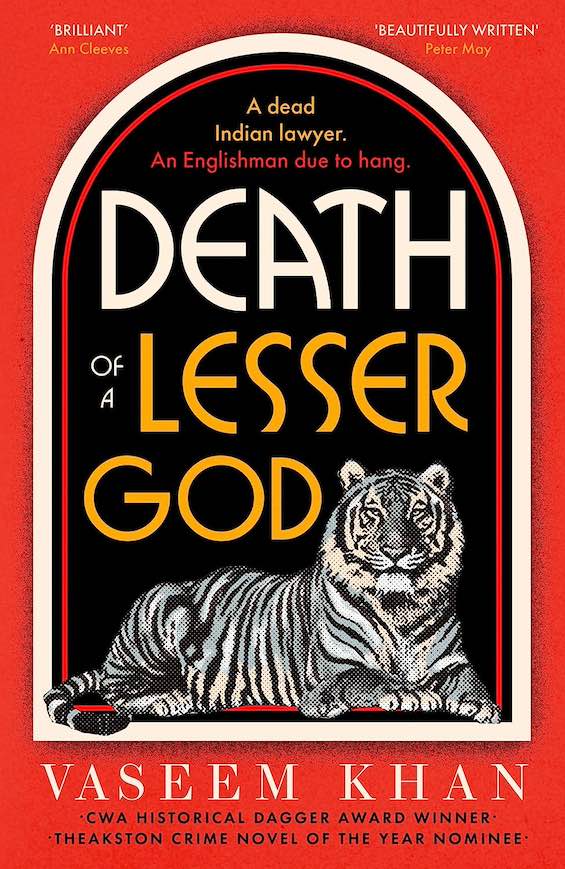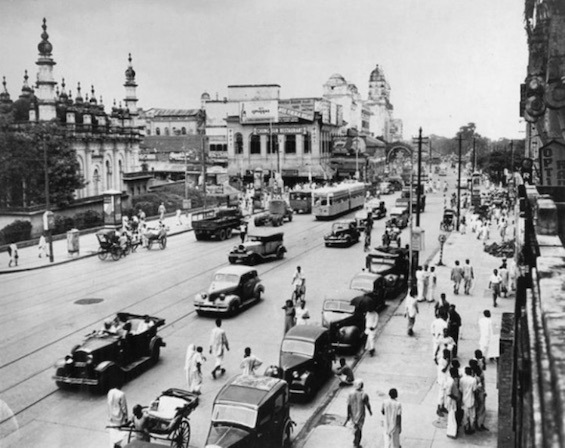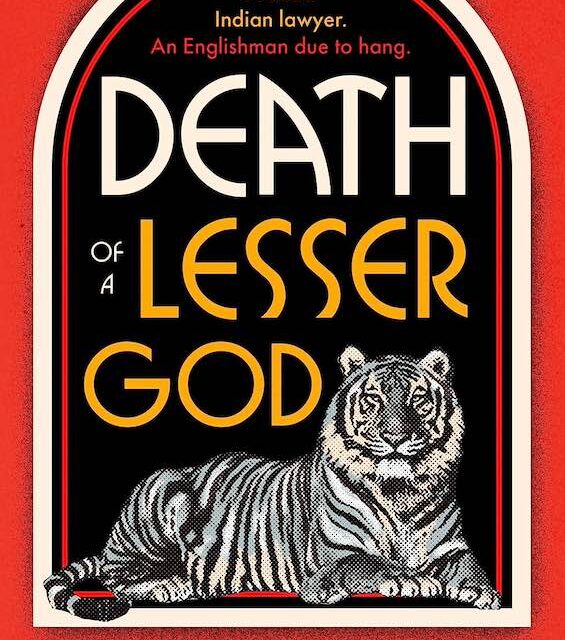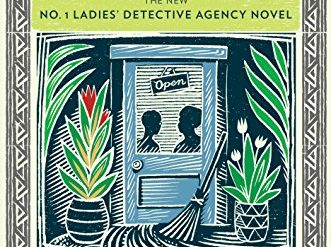
Estimated reading time: 6 minutes
Bombay, 1950. Three years after Partition, when intercommunal violence set neighbor against neighbor, leaving festering wounds that would last for generations. To the north and the east, in Punjab and Bengal, the killing frenzy had been greatest. But here in Bombay, tensions within the city’s multiethnic population had never erupted into wholesale slaughter. And for Inspector Persis Wadia of the Bombay Police, a Parsi, religion has nothing to do with the hurdles she faces. As the nation’s first female detective inspector, she confronts at every turn the near-universal conviction that women do not belong in the police. Now, in Vaseem Khan’s brilliant historical Indian detective novel, Death of a Lesser God, the fact that Persis is female may be one of the reasons Persis’s boss’s boss assigns her a case nobody in their right mind would wish to undertake.
A murder case that’s nothing but trouble
The facts stare her in the face. James Whitby, son of a despised English industrialist, has been convicted of the murder of a prominent Muslim lawyer. The Supreme Court has rejected his final appeal, and he will face execution in eleven days. But the Additional Deputy Commissioner of Police has insisted she “review” the case—in secret. Apparently, Whitby’s father has gotten to someone high up in the police hierarchy. And Persis must somehow prove whether the young man has in fact murdered the lawyer. She knows she will be vilified if word gets out that she has in reality reopened the case. Because fury at the British just three years after Independence runs hot everywhere in India. And it’s a safe bet that as she pokes around in the past, the press will pick up the scent. She may well find herself at the dubious mercy of a mob.
Death of a Lesser God (Malabar House #4) by Vaseem Khan (2023) 376 pages ★★★★★

Two other murders, and events in Calcutta, complicate the case
As Persis digs into the known facts of the lawyer’s murder, she quickly discovers that the case involves far more than the killing of a single man. Whitby’s father, Charles, had been exonerated of an alleged murder thirty years before. And the lawyer had been entangled in a series of events in Calcutta several years before moving to Bombay involving yet another murder. There, one of the city’s most notorious gangsters, and the powerful Deputy Chief Minister of West Bengal, had both been involved somehow. Complicating matters even further, the shadow of Partition enshrouds the facts. All these people and events will prove to have been mixed up in James Whitby’s case. And as Persis steadily makes her way through the murky depths of this history, she will come closer to death than ever before.
A book that’s exceptionally well written
Vaseem Khan is a gifted stylist with a particular gift for evocative imagery. Consider these examples:
- “Monsoon rain came down like a rebuke from the gods, lashing the parched earth with enough force to concuss cattle and drown dreams.”
- “She was led deep into the prison by a whey-faced guard who looked like an upright cadaver with working eyeballs.”
- “The humidity was already high enough to drown fish.”
- “The place was so crowded even sardines would have complained.”
- “He lumbered to his feet with the grace of a rhinoceros attempting to climb a stepladder.”
I don’t know about you. But I can’t resist writing this colorful. If anything, there may even have been too much of it in Death of a Lesser God.
But I can’t resist one more example. Here’s Khan describing Bombay three-quarters of a century ago: “this was a city of wealth and glamour, home to the nation’s premier film industry, where captains of industry rubbed shoulders with sportsmen, politicians, and international celebrities in the glitzy jazz halls of five-star hotels. In the streets beyond the gilded ballrooms, beggars, lepers, eunuchs, and a limitless supply of the disenfranchised and the dispossessed existed in a sort of rude democracy of the damned.”
About the author

Vaseem Khan is best known for the Baby Ganesh series of detective novels. But I can’t bring myself to read them, since the sidekick of the protagonist, retired Mumbai police Inspector Ashwin Chopra, is a baby elephant. I’ll stick to human investigators. And the four novels to date in the Malabar House series, which are excellent, are enough to convince me that he can write credible historical fiction.
Khan was born in 1973 in the United Kingdom. He studied accounting and finance at the London School of Economics, then spent a decade as a management consultant on the subcontinent for an Indian hotel group. Since 2006 he has worked at University College London for the Department of Security and Crime Science. He is the author of five novels and two novellas in the Baby Ganesh Detective Agency series and four novels to date anchored at Malabar House in Mumbai.
For related reading
This series is included in The best mystery series set in Asia.
I’ve reviewed all three previous books in the Malabar House series:
- Midnight at Malabar House (A compelling murder mystery set in India after Partition)
- The Dying Day (A baffling mystery based on ciphers)
- The Lost Man of Bombay (A baffling murder mystery in post-Independence India)
You’ll find similar novels at The best Indian detective novels. And you might want to check out Good books about India, past and present.
You might also enjoy 30 outstanding detective series from around the world and Top 10 historical mysteries and thrillers.
And you can always find my most popular reviews, and the most recent ones, on the Home Page.



























